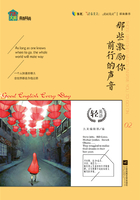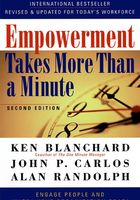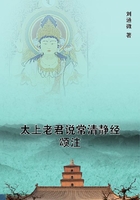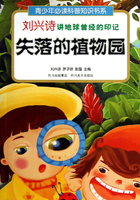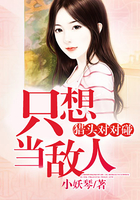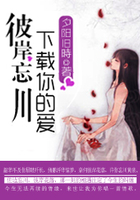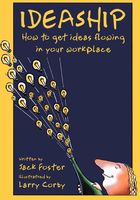Six Moons Later
Rea lay on the pile of furs beside her small, roaring fireplace, entirely and utterly alone, and groaned and shrieked in agony as her labor pains came. Outside, the winter wind howled as fierce gales slammed the shutters against the sides of the house and snow burst in drifts into the cottage. The raging storm matched her mood.
Rea's face was shiny with sweat as she sat beside the small fire, yet she could not get warm, despite the raging flames, despite the baby kicking and spinning in her stomach as if it were trying to leap out. She was wet and cold, shaking all over, and she felt certain that she would die on this night. Another labor pain came, and feeling the way she did, she wished the marauder had just killed her back then; it would have been more merciful. This slow prolonged torture, this night of sheer agony, was a thousand times worse than anything he could have ever done to her.
Suddenly, rising even over her shrieks, over the gales of wind, there came another sound-perhaps the only sound left that was capable of sending a jolt of fear up her spine.
It was the sound of a mob. An angry mob of villagers, coming, she knew, to kill her child.
Rea summoned every last ounce of strength, strength she did not even know she had left, and, shaking, somehow managed to lift herself up off the floor. Groaning and screaming, she landed on her knees, wobbling. She reached out for a wooden peg on the wall, and with everything she had, with one great shriek she rose to standing.
She could not tell if it hurt more to be lying down or on her feet. But she had no time to ponder it. The mob grew louder, closer, and she knew they would soon arrive. Her dying would not bother her. But her baby dying-that was another matter. She had to get this child safe, no matter what it took. It was the strangest thing, but she felt more attached to the baby's life than her own.
Rea managed to stumble to the door and crashed into it, using the knob to hold herself up. She stood there, breathing hard for several seconds, resting on the knob, bracing herself. Finally, she turned it. She grabbed the pitchfork leaning against the wall and, propping herself up on it, opened the door.
Rea was met by a sudden gale of wind and snow, cold enough to take her breath away. The shouts met her, too, rising even over the wind, and her heart dropped to see in the distance the torches, winding their way toward her like enraged fireflies in the night. She glanced up at the sky and between the clouds caught a glimpse of a huge blood red moon, filling the sky. She gasped. It was not possible. She had never seen the moon shine red, and had never seen it in a storm. She felt a sharp kick in her stomach, and she suddenly knew, without a doubt, that that moon was a sign. It was meant for the birth of her child.
Who is he? she wondered.
Rea reached down and held her stomach with both hands as another person writhed inside her. She could feel his power, aching to break through, as if he were eager to fight this mob himself.
Then they came. The flaming torches lit the night as a mob appeared before her, emerging from the alleys, heading right for her. If she had been her old self, strong, able, she would have made a stand. But she could barely walk-barely stand-and she could not face them now. Not with her child about to come.
Even so, Rea felt a primal rage course through her, along with a primal strength, the primal strength, she knew, of her baby. She received a jolt of adrenaline, too, and her labor pains momentarily subsided. For a brief moment, she felt back to herself.
The first of the villagers arrived, a short, fat man, running for her, holding out a sickle. As he neared, Rea reached back, grabbed the pitchfork with both hands, stepped sideways, and released a primal scream as she drove it right through his gut.
The man stopped in shock, then collapsed at her feet. The mob stopped, too, looking at her in shock, clearly not expecting that.
Rea did not wait. She extracted the pitchfork in one quick motion, spun it overhead, and smashed the next villager across the cheek as he lunged at her with his club. He, too, dropped, landing in the snow at her feet.
Rea felt an awful pain in her side as another man rushed forward and tackled her, driving her down into the snow. They slid several feet, Rea groaning in pain as she felt the baby kicking within her. She wrestled with the man in the snow, fighting for her life, and as his grip momentarily loosened, Rea, desperate, sank her teeth into his cheek. He shrieked as she bit down hard, drawing blood, tasting it, not willing to let go, thinking of her baby.
Finally he rolled off of her, grabbing his cheek, and Rea saw her opportunity. Slipping in the snow, she crawled to her feet, ready to run. She was nearly there when suddenly she felt a hand grab her hair from behind. This man nearly yanked her hair out of her head as he pulled her back down to the ground and dragged her along. She looked back to see Severn scowling down at her.
"You should have listened when you had the chance," he seethed. "Now you will be killed, along with your baby."
Rea heard a cheer from the mob, and she knew she had reached her end. She closed her eyes and prayed. She had never been a religious person, but at this moment, she found God.
I pray, with every ounce of who I am, that this child be saved. You can let me die. Just save the child.
As if her prayers were answered, she suddenly felt the release of pressure on her hair, while at the same time she heard a thump. She looked up, startled, wondering what could have happened.
When she saw who had come to her rescue, she was stunned. It was a boy-Nick-several years younger than her. The son of a peasant farmer, like she, he had never been that bright, always picked on by the others. Yet she had always been kind to him. Perhaps he remembered.
She watched as Nick raised a club and smashed Severn in the side of the head, knocking him off of her.
Nick then faced off with the mob, holding out his club and blocking her from the others.
"Go quickly!" he yelled to her. "Before they kill you!"
Rea stared back at him with gratitude and shock. This mob would surely pummel him.
She jumped to her feet and ran, slipping as she went, determined to get far while she still had time. She ducked into alleyways, and before she disappeared, she glanced back to see Nick swinging wildly at the villagers, clubbing several of them. Several men, though, pressed forward and tackled him to the ground. With him out of the way, they ran after her.
Rea ran. Gasping for breath, she twisted and turned through the alleys, looking for shelter. Heaving, in horrific pain, she did not know how much farther she could go.
She finally found herself exiting into the village proper, with its elegant stone houses, and she glanced back with dread to see they were closing in, hardly twenty feet away. She gasped, stumbling more than running. She knew she was reaching her end. Another labor pain was coming.
Suddenly there came a sharp creak, and Rea looked up to see an ancient oak door before her open wide. She was startled to see Fioth, the old apothecary, peek out from his small stone fort, wide-eyed, beckoning her to enter quickly. Fioth reached out and yanked her with a grip surprisingly strong for his old age, and Rea found herself stumbling through the door of the luxurious keep.
He slammed and bolted it behind her.
A moment later the thumping came, the hands and sickles of dozens of irate villagers trying to knock it down. Yet the door held, to Rea's immense relief. It was a foot thick and centuries older than she. Its heavy iron bolts did not even bend.
Rea breathed deep. Her baby was safe.
Fioth leaned over and examined her, his face filled with compassion, and seeing his gentle look helped her more than anything else. No one had looked upon her with kindness in this village for months.
He removed her furs as she gasped from another labor pain. It was quiet in here, the gales of snow brushing the roof muted, and very warm.
Fioth led her to the fire's side and laid her down on a pile of furs. It was then that it all hit her: the running, the fighting, the pain. She collapsed. Even if there were a thousand men knocking down the door, she knew she could not move again.
She shrieked as a sharp labor pain tore through her.
"I can't run," Rea gasped, beginning to cry. "I cannot run anymore."
He ran a cool, damp cloth across her forehead.
"No need to run anymore," he said, his voice, ancient, reassuring, as if he had seen it all before. "I am here now."
She shrieked and groaned as another pain ripped through her. She felt as if she were being torn in two.
"Lean back!" he commanded.
She did as she was told-and a second later, she felt it. A tremendous pressure between her legs.
There suddenly came a sound that terrified her.
A wail.
The scream of a baby.
She nearly blacked out from the pain.
She watched the apothecary's expert hands, as she went in and out of consciousness, pulling the child from her, reaching out with something sharp, cutting the umbilical cord. She watched him wipe the baby with a cloth, clear its lungs, nose, throat.
The wail and scream came even louder.
Rea burst into tears. It was such a relief to hear the sound, penetrating her heart, rising even above the slamming of the villagers against the door. A child.
Her child.
He was alive. Against all odds, he had been born.
Rea was dimly aware of the apothecary wrapping him in a blanket, and then she felt the warmth as he placed him in her arms. She felt the weight of him on her chest, and she held him tight as he screamed and wailed. She had never been so overjoyed, tears gushing down her face.
Suddenly, there came a new sound: horses galloping. The clanging of armor. And then, shrieks. It was no longer the sound of the mob shouting to kill her-but rather, of the mob being killed itself.
Rea listened, baffled, trying to understand. Then she felt a wave of relief. Of course. The noble had come back to save her. To save his child.
"Thank God," she said. "The knights have come to my rescue."
Rea felt a sudden burst of optimism. Perhaps he would take her away from all this. Perhaps she would have a chance to start life over again. Her boy would grow up in a castle, become a great lord, and perhaps she would, too. Her baby would have a good life. She would have a good life.
Rea felt a flood of relief, tears of joy flooding her cheeks.
"No," the apothecary corrected, his voice heavy. "They have not come to save your baby."
She stared back, confused. "Then why have they come?"
He stared at her grimly.
"To kill it."
She stared back, aghast, feeling a cold dread run through her.
"They did not trust the job to a mob of villagers," he added. "They wanted to make sure it was done right, by their own hands."
Rea felt ice run through her veins.
"But…" she stammered, trying to understand, "…my baby belongs to the knight. Their commander. Why? Why would they want to kill it?"
Fioth shook his head grimly.
"Your knight, the baby's father, was murdered," he explained. "Many moons ago. Those men you hear are not his own. They are his rivals. They want his baby dead. They want you dead."
He stared back with a panicked urgency and she knew, with dread, that he spoke the truth.
"You must both flee this place!" he urged. "Now!"
He had hardly finished uttering the words when there came the crash of an iron pole against the door. This time it was no mere farmer's sickle-it was a professional knight's battering ram. As it hit, the door buckled.
Fioth turned to her, eyes wide in panic.
"GO!" he shouted.
Rea looked back at him, terror-stricken, wondering, in her condition, if she could even stand.
He grabbed her, though, and yanked her to her feet. She shrieked in pain, the motion pure agony.
"Please!" she cried. "It hurts too much! Let me die!"
"Look in your arms!" he cried back. "Do you want him to die?"
Rea looked down at the boy wailing in her arms, and as another smash came against the door, she knew he was right. She could not let him die here.
"What about you?" she moaned, realizing. "They will kill you, too."
He nodded with resignation.
"I have lived for many sun cycles," he replied. "If I can delay them from finding you, to give you a chance for safety, I will gladly give up what remains of my life. Now go! Head for the river! Find a boat and flee from here! Quickly!"
He yanked her before she had a chance to think, and before she knew it he was leading her to the rear entrance of his fort. He pulled back a tapestry to reveal a hidden door carved into the stone. He leaned against it with all his might and it opened with a scraping sound, releasing ancient air. A burst of cold air rushed into the fort.
Barely had it opened than he pushed her and her baby out the back.
Rea found herself immersed in the snowstorm, stumbling down a steep, snowy riverbank, clutching her baby. She slipped and slid, feeling as if the world were collapsing beneath her, barely able to move. As she ran, lightning struck an immense tree close to her, lighting up the night, and sent it crashing down too close to her. The baby screamed. She was horrified: never would she have believed that lightning could strike in a snowstorm. This was indeed a night of omens.
Rea slipped again as the terrain grew steep, and this time she landed on her butt. She went flying, and she cried out as the slope took her all the way down toward the riverbank.
She breathed with relief to reach it and realized if she hadn't slid all this way, she probably could not have made the run. She glanced back uphill, shocked at how far she had come, and watched in horror as the knights invaded Fioth's fort and set it ablaze. The fire burned strongly, even in the snow, and she felt an awful wave of guilt, knowing the old man had died for her.
A moment later knights burst out the back door, while more horses galloped around it. She could see they'd spotted her, and without pausing raced for her.
Rea turned and tried to run, but there was nowhere left to go. She was in no condition to run, anyway. All she could do was drop to her knees before the riverbank. She knew she would die here. She had reached the end of her rope.
Yet hope remained for her baby. She looked out and saw a tangle of sticks, perhaps a beaver's nest, so thick it resembled a basket. Driven by a mother's love, she thought quickly. She reached over and grabbed it and quickly placed her baby inside it. She tested it, and to her relief, it floated.
Rea reached out and prepared to shove the basket into the calm river's waters. If the current caught it, it would float away from here. Somewhere down river. How far, and for how long, she did not know. But some chance of life was better than none.
Rea, weeping, leaned down and kissed her baby's forehead. She leaned back and shrieked with grief. Hands shaking, she removed the necklace from around her neck and placed it around her baby's.
She clasped her hands over both of his.
"I love you," she said, between sobs. "Never forget me."
The baby shrieked as if he understood, a piercing cry, rising even above the new clap of thunder and lightning, even above the sound of approaching horses.
Rea knew she could wait no longer. She gave the basket a push, and soon, the current caught it. She watched, sobbing, as it disappeared into the blackness.
She had no sooner lost sight of it than the clanging of armor appeared behind her-and she wheeled to find several knights dismounting, but feet away.
"Where's the child?" one demanded, his visor lowered, his voice cutting through the storm. It was nothing like the visor of the man who had had her. This man wore red armor, of a different shape, and there was no kindness in his voice.
"I…" she began.
Then she felt a fury within her-the fury of a woman who knew she was about to die. Who had nothing left to lose.
"He's gone," she spat, defiant. She smiled. "And you shall never have him. Never."
The man groaned in anger as he stepped forward, drew a sword, and stabbed her.
Rea felt the awful agony of steel in her chest, and she gasped, breathless. She felt her world becoming lighter, felt herself immersed in white light, and she knew that this was death.
Yet, she felt no fear. Indeed, she felt satisfaction. Her baby was safe.
And as she landed face-first in the river, the waters turning red, she knew it was over. Her short, hard life had ended.
But her boy would live forever.
*
The peasant woman, Mithka, knelt by the river's edge, her husband beside her, the two frantically reciting their prayers, feeling no other recourse during this uncanny storm. It felt as if the end of the world were upon them. The blood red moon was a dire omen in and of itself-but appearing together with a storm like this, well, it was more than uncanny. It was unheard of. Something momentous, she knew, was afoot.
They knelt there together, gales of wind and snow whipping their faces, and she prayed for protection for their family. For mercy. For forgiveness for anything she may have done wrong.
A pious woman, Mithka had lived many sun cycles, had several children, had a good life. A poor life, but a good one. She was a decent woman. She had minded her business, had looked after others, and had never done harm to anyone. She prayed that God would protect her children, her household, whatever meager belongings they had. She leaned over and placed her palms in the snow, closed her eyes, and then bent low, touching her head to the ground. She prayed to God to show her a sign.
Slowly, she lifted her head. As she did, her eyes widened and her heart slammed at the sight before her.
"Murka!" she hissed.
Her husband turned and looked at it, too, and both knelt there, frozen, staring in astonishment.
It couldn't be possible. She blinked several times, and yet there it was. Before them, carried in the water's current, was a floating basket.
And in that basket was a baby.
A boy.
His screams pierced the night, rose even above the storm, above the impossible claps of thunder and lightning, and each scream pierced her heart.
She jumped into the river, wading in deep, ignoring the icy waters, like knives on her skin, and grabbed the basket, fighting her way against the current and back toward shore. She looked down and saw the baby was meticulously wrapped in a blanket, and that he was, miraculously, dry.
She examined him more closely and was astonished to see a gold pendant around his neck, two snakes circling a moon, a dagger between them. She gasped; it was one she recognized immediately.
She turned to her husband.
"Who would do such a thing?" she asked, horrified, as she held him tight against her chest.
He could only shake his head in wonder.
"We must take him in," she decided.
Her husband frowned and shook his head.
"How?" he snapped. "We cannot afford to feed him. We can barely afford to feed us. We have three boys already-what do we need with a fourth? Our time raising children is done."
Mithka, thinking quick, snatched the thick gold pendant and placed it in his palm, knowing, after all these years, what would impress her husband. He felt the weight of the gold in his hand, and he clearly looked impressed.
"There," she snapped back, disgusted. "There's your gold. Enough gold to feed our family until we're all old and dead," she said sternly. "I am saving this baby-whether you like it or not. I will not leave him to die."
He still frowned, though less certain, as another lightning bolt struck above and he studied the skies with fear.
"And do you think it's a coincidence?" he asked. "A night like this, such a baby comes into this world? Have you any idea who you are holding?"
He looked down at the child with fear. And then he stood and backed away, finally turning his back and leaving, gripping the pendant, clearly displeased.
But Mithka would not give in. She smiled at the baby and rocked him to her chest, warming his cold face. Slowly, his crying calmed.
"A child unlike any of us," she replied to no one, holding him tight. "A child who shall change the world. And one I shall name: Royce."
PART TWO


